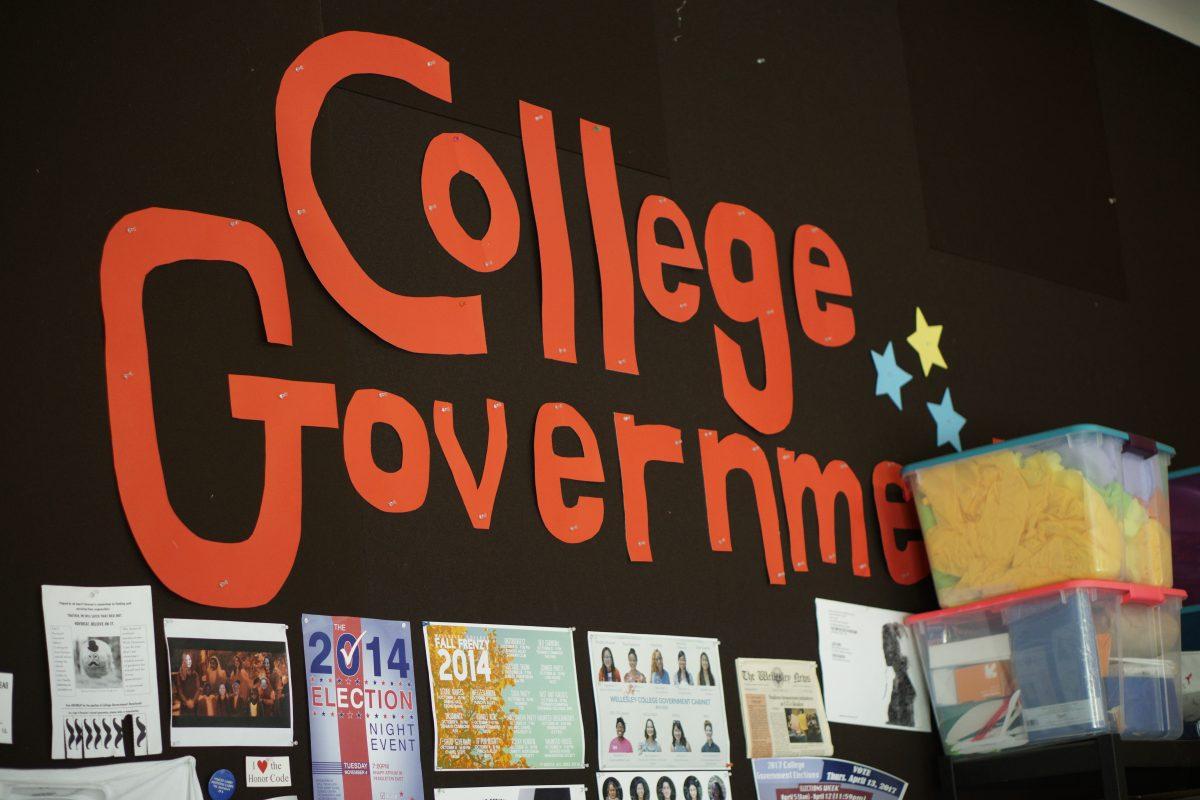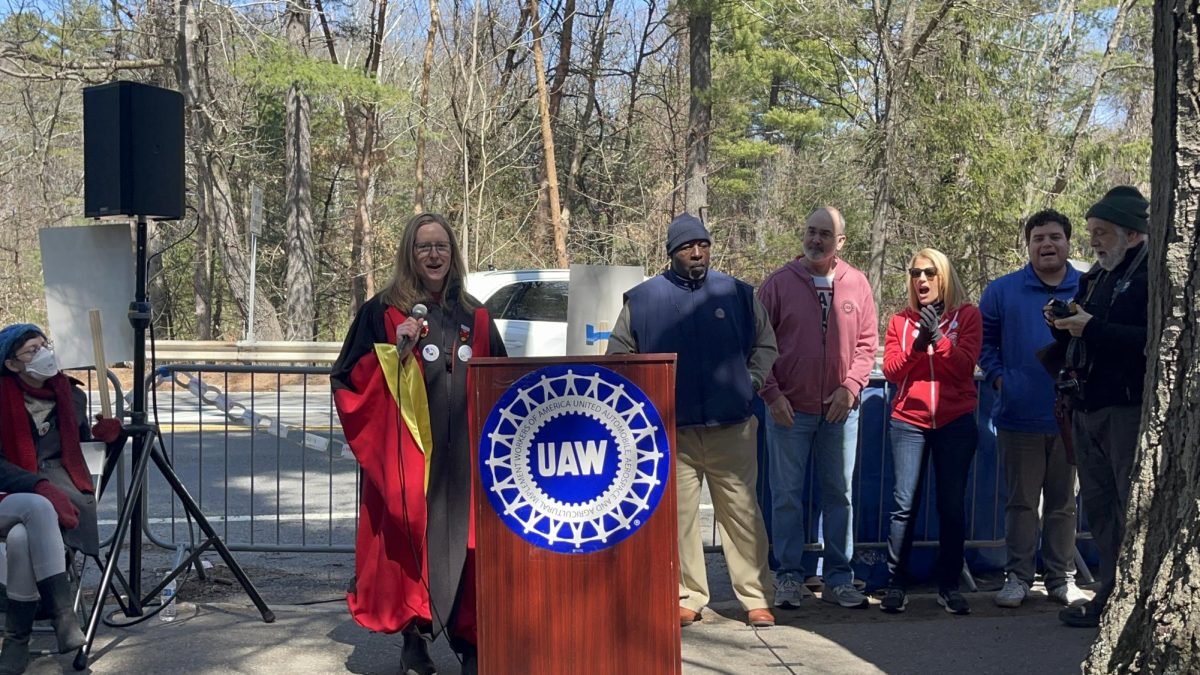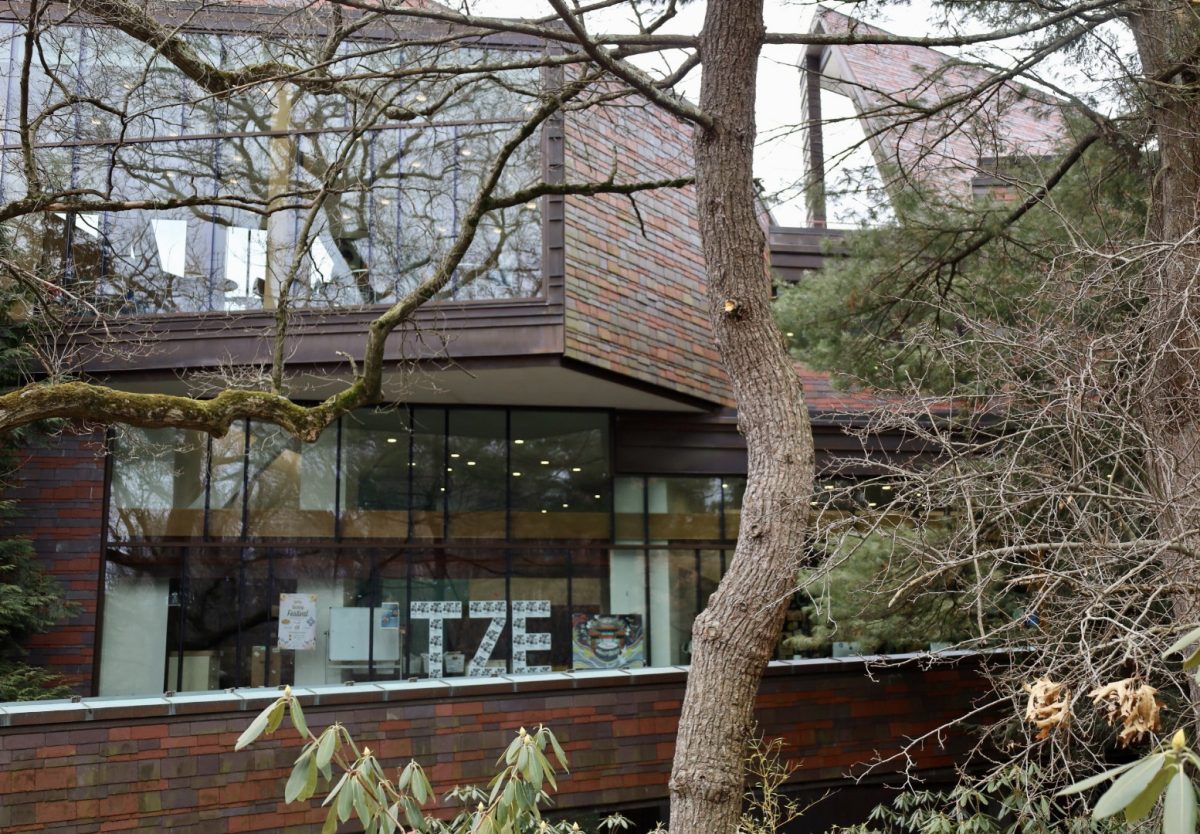On Oct. 5, College Government (CG) and House Presidents Council (HPC) hosted a town hall to discuss social life on campus, drawing nearly 100 students and administrators to share their experiences on the matter, in the hopes of creating a healthier and more welcoming environment.
The town hall followed the cancellation of the campus-wide party Remix, which was announced via email on Sept. 1. In the aftermath, the cancellation and resulting ire raised serious questions about social life at the College.
The initial backlash arose due to the perceived lack of transparency on the part of administration and College Government Cabinet. Tory Roth ’18, House President of Stone Hall, feels burdened by the lack of trust between administration and students, particularly in the College’s stance on alcohol.
“I think it is very important to set up a safe drinking culture here at Wellesley that doesn’t mean ‘all or nothing.’ When [the administration] acts like it’s wrong to engage in this sort of activity, and [they’re] forcing [students] to push it under the rug and to not talk about it like adults. It is possible to drink and be responsible… We need to set an example of how to drink responsibly [for first-years] and that doesn’t mean not drinking. That’s like abstinence-only sex education,” she stated.
The discussion on supposed lack of trust led to a more delicate topic among attendees—the misogyny of Wellesley’s attitude to a more traditional college social life. Many students suggested that administrative paternalism prevents a typical college social life due to an outdated puritanical need to protect women from debauchery. Empowerment, as a number of students noted, extends beyond academics and career choices and into the realm of fun and entertainment, including the choices that will inevitably accompany them. Roth stated, “It’s important for me to be treated like an adult by the administration and my peers and to know that you guys [the administration] know that I can consume alcohol, have sex and [do] other drugs, respectfully, safely and at my own discretion. It’s not wrong to want those things, and it doesn’t make me a bad student, a bad leader or a bad person.”
Numerous students also placed blame on Wellesley’s stress culture for the difficulties in maintaining a healthy social life. Aubrey Simonson ’19 believes that “a great deal of the stress culture comes from the school’s patronizing attitude and policies toward student partying and fun… They make Wellesley less of [a] place for young women to explore who they are, become leaders and govern themselves… and more of a safe, quiet place in the woods to keep your daughter out of trouble for four years.”
A main complaint amongst the students present was the extra lengths they have to go to in order to obtain their desired social life. This includes taking the Peter Pan bus service into the city to seek parties at MIT, Harvard and other locations. Sydney Tischler ’20 believes that the necessity to leave campus to find a social life is fundamentally averse to Wellesley’s message of female empowerment. “Historically and traditionally, people get a lot of parties thrown at other campuses that are mostly thrown by predominantly male organizations, or completely male organizations, and that’s something we have to talk about. Regardless of your sexual orientation, regardless of your gender identity, if you’re going out to Boston to parties thrown by predominantly male organizations, you’re going to be subject to whoever they want you to be in the context of that party.”
Simonson finds their social life entirely off-campus, “which meant that [they] made friends off-campus, much more so than [they] did here. Now, [they] spend every weekend at Brandeis or MIT and feel extremely disconnected from Wellesley.”
The conversation then drifted into the topic of the logistical and fiscal burden of maintaining an off-campus social life. Many students iterated that the six dollars required to utilize the bus services on the weekends is unnecessary and questioned the validity of the fare. Several complaints about the fee and the current state of the bus service were made to Peter Eastment, director of the Department of Faculty Housing and Transportation, but Eastment made no comment during the town hall.
Concern for first years was also a common thread throughout the conversation. Excessive drinking is a main concern for student leaders and administration, and many students believe that cancelling the sole school-sponsored party event puts students new to the area and college drinking culture at risk for a number of issues. Students pointed at that without any parties at Wellesley, first years will seek parties in Boston and Cambridge in areas that are unfamiliar and dangerous to navigate at night.
Even though the conversation primarily centered around parties, several students noted that social life does not necessarily equate to parties at the level of Remix.Students recounted instances of other students preventing them from listening to music or watching television in common spaces or in their rooms, creating a paranoid atmosphere in dorms and common spaces. Christina Wang ’18, House President of Severance Hall, said that “Wellesley is unique in the fact that [students] live on campus all four years,” pointing out the difficulty of living in spaces where courtesy and understanding for other students is lacking.
Administrative representation was inherent to the goals of the town hall. Members of the administration present at the town hall included those from the Physical Education, Recreation, Athletics (PERA) department, the Office of Student Involvement, Campus Police, the Dean’s Office, Department of Faculty Housing and Transportation and the Office of Residential Life. Several members of administration admitted that the grievances aired at the town hall were unbeknownst to those departments. Several students, however, desired a more outward administrative response, particularly to the direct questions asked of them. Dominiki Kurz ’20 says that she “was disappointed by the lack of solutions or involvement from the faculty [and] staff. It seems that as we were listing our issues with the school, [administration] just sat in their seats.”
Simonson closes the town hall with a reiteration of the issues of trust. “A lot of this conversation is about building trust between the student body and the administration, especially on the issue of students having social life, and. . .cancelling Remix two years in a row with—from what it sounds like, no student input and no explanation to the student body—was a major violation of trust.”






